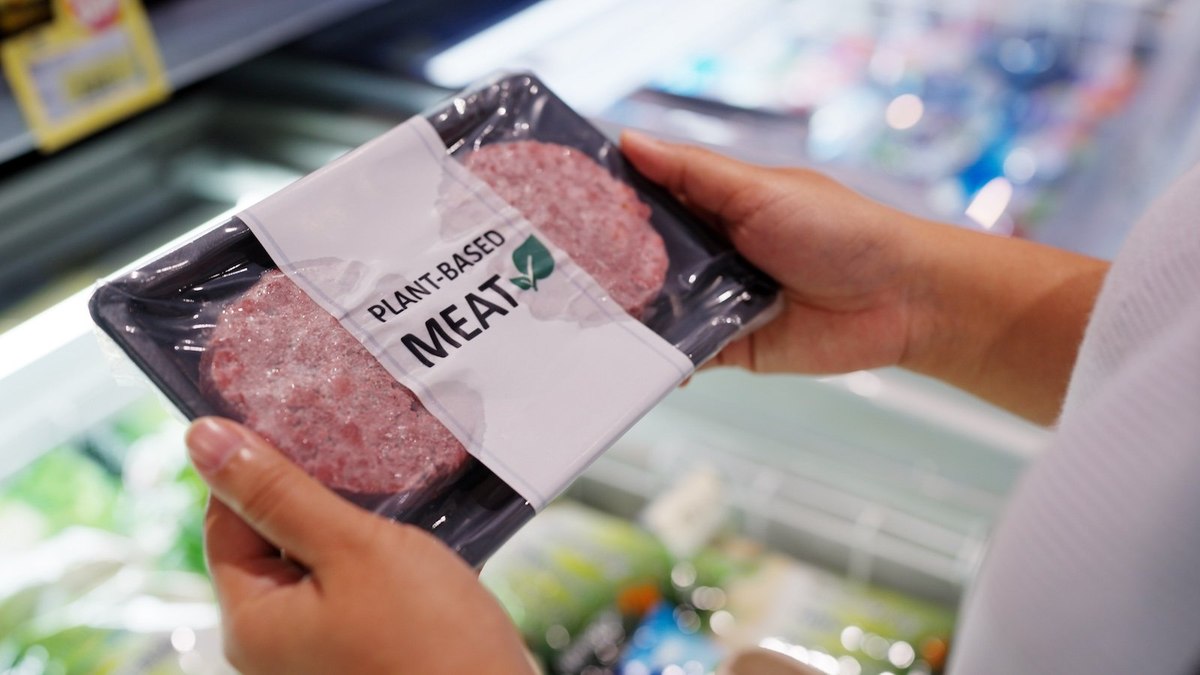
Should “meaty” language be used for plant-based products in Britain?
This year, the French government decreed that words such as “steak,” “filet,” and “ham,” can no longer be used on the labels of non-meat products. In doing so, France joins Italy, Turkey and South Africa, which also ban the use of “meaty” and “milky” language to describe plant-based products.
Meat and dairy producers have long lobbied for this change, arguing that using similar terms for plant-based products confuse and mislead consumers. Perhaps more surprising, most consumers (57%) also believe that plant-based food brands should avoid meat-related language. Nearly half (45%) also object to the use of dairy-related words to describe analogous non-dairy products.
If consumers object, why do brands continue to use this kind of language? A deeper look into consumer opinion shows that key audiences are more open to “veggie burgers” and “soy milk” than the general population.
More than half of Brits say “no” to “veggie bacon”
A small majority of British consumers (57%) say brands should not use “meaty” terms for non-meat products. This compares to 25% who say they should use such terms, and a 18% who don’t know.
Britain is slightly more open to using dairy-related terms such as “soy milk” and “vegan cheese” for non-dairy products. Nearly half (45%) say they shouldn’t be used, but 37% say they should, and another 18% don’t know.
While this might suggest that brands should abandon this kind of language, not all audiences react the same way. Older consumers are more resistant to the use of this terminology than younger ones. Among consumers aged 55 years or more, 70% object to ‘meaty’ words being used to describe and market non-meat products. Among 18-34-year-olds, that number is only 41%.
Diet matters: Vegetarians and dairy-abstainers more open to “meaty” language
Diet also matters when it comes to people’s opinions. Among those who eat meat, those who object to “meaty” terms for non-meat products outnumber those who support these terms, 60% to 22%. Among vegetarians, 45% support “meaty” terms for substitutes compared to 37% who object.
Insofar as these brands are targeting consumers who don’t eat meat or who are trying to reduce their meat consumption, using “meaty” language will not be as risky as it might seem from the opinion of the general population.
A similar pattern appears with dairy. Half of dairy consumers (50%) think terms like “soy milk” should be avoided compared to only 35% of dairy non-consumers.
Should makers of meat and dairy substitutes come up with new terminology?
While true that around half of the consumers object to using “meaty” and “milky” language for substitute products, it’s not clear that brands should invent a new terminology. This is because most (67%) consumers who object to meat-based terms also say they’ll be unlikely to ever try meat-based substitutes.
For those who are likely to buy substitute products in the future, things are different. Among these potential customers, those who prefer “meaty” terms for plant-based substitutes outnumber those who object to them 43% to 39%.
For potential customers of dairy substitutes, 55% prefer dairy-related terms compared to 30% who don’t.
If brands want to target their most likely customers, it makes sense to continue using “meaty” and “milky” language as long as regulators allow them.
Methodology: YouGov Surveys: Serviced provides quick survey results from nationally representative or targeted audiences in multiple markets. This study was conducted online between September 2-4, 2024, with a nationally representative sample of 2,183 adults in UK (aged 18+ years), using a questionnaire designed by YouGov. Data figures have been weighted by age, gender, education, social class and region to be representative of all adults. Learn more about YouGov Surveys: Serviced.